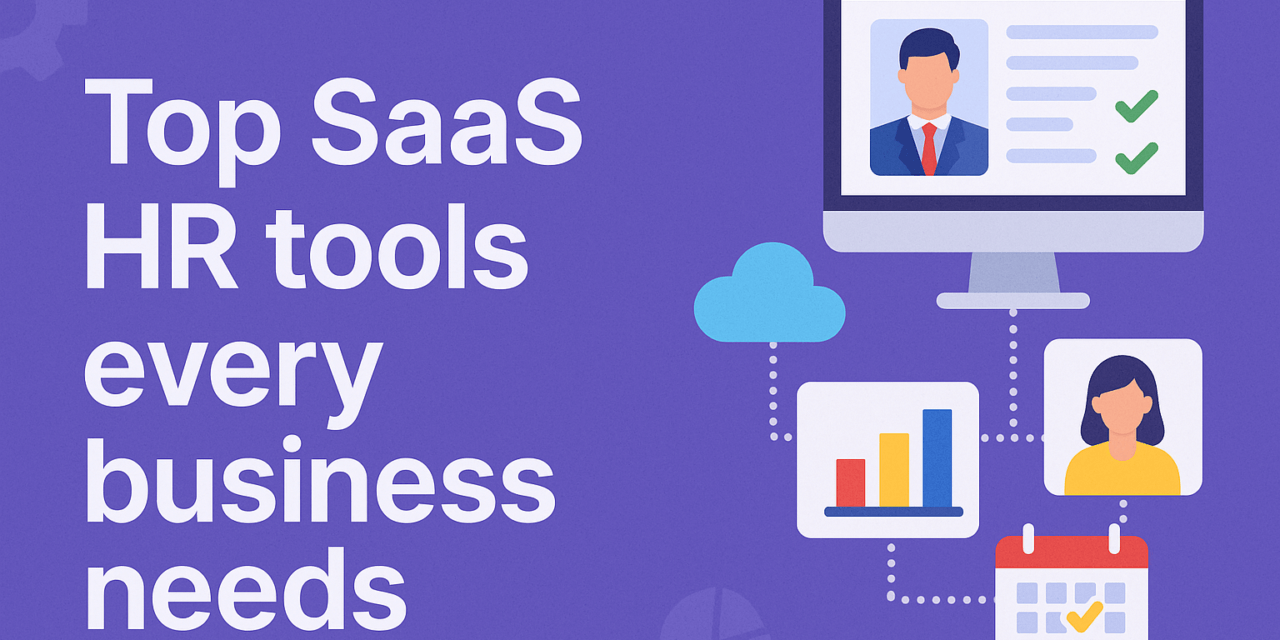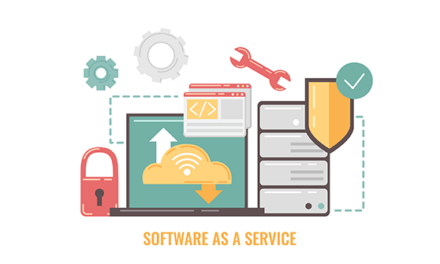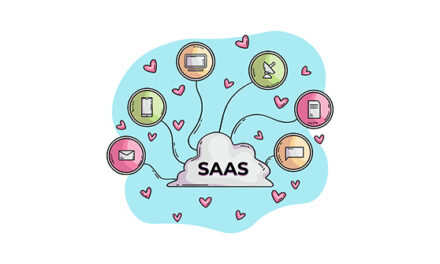Key Takeaways
- SaaS HR systems are becoming strategic partners, helping businesses attract, retain, and engage talent effectively.
- AI features like predictive hiring, retention analytics, chatbots, and personalized learning are reshaping HR processes.
- Leading platforms include Workday, SAP SuccessFactors, Oracle HCM Cloud, ADP, Ceridian Dayforce, Rippling, Deel, BambooHR, Gusto, and Zenefits.
- SaaS development agencies help businesses with custom solutions, integrations, compliance, and long-term scalability.
- Choosing the right HR software depends on company size, global reach, integration needs, security, and ease of use.
It has always been said that Human Resources is the very heartbeat of any organization.
In 2025 and onward, HR will no longer be about payroll, legal compliance, or hiring anymore; instead, it will now focus on designing seamless employee experiences, empowering managers with insight, and allowing businesses to steer through the dynamic nature of work.
With remote and hybrid models still reigning supreme and AI-based decision-making taking prominence, 2025 will mark the emergence of the best SaaS HR software as the strategic partner for companies that want to retain agility.
Reports state that 78% of the organizations will have used at least one SaaS HR platform by 2025.
This guide will take you through the ways in which HR platforms based on SaaS are reshaping the Workplace, why companies are tilting toward SaaS Development Services, and how to decide on a solution for your own organization.
- Why saas HR software booming?
- The future of work meets HR tech
- Top features of saas HR software
- Top 10 saas HR software in 2025 (buyer’s guide)
- Comparing key saas HR software in 2025
- The role of saas development agencies
- SaaS development services for HR transformation
- AI SaaS: the game-changer for HR in 2025
- Choosing the best saas HR software in 2025
- Final thoughts
Why saas HR software booming?
In the last few years, the global SaaS HR market has exploded. Statista forecasts the global human capital market to surpass a $35 billion mark by 2028, with SaaS leading the way.
SaaS HR solutions show companies 27% faster hiring cycles than traditional solutions. Companies prefer cloud-based HR today because of:
- Scalability: Potential to grow with your workforce without the massive costs associated with building infrastructure.
- Accessibility: HR teams or employees can log in anytime and from anywhere.
- Cost-Effectiveness: No heavy upfront investment; pay for your usage.
- Innovation: Frequent updates with the latest features without having to go through a time-consuming IT cycle.
But it gets more exciting when you consider how SaaS is moving toward strategic growth in the areas of data, automation, and AI.
The future of work meets HR tech
Imagine onboarding a new hire where:
- The contract of employment is digitally signed within seconds.
- The payroll syncs automatically with compliance requirements.
- The AI-fueled dashboards recommend training modules tailored to the individual.
- If an employee wants a day off, buy a new set of clothes for benefits, or record a performance goal, the employee can do it with the mobile app.
It’s not a futuristic dream—it’s the actual scene of SaaS HR software in 2025. From startups to global enterprises, companies are utilizing the tools to move HR from a back office toward an innovation avenue.
Top features of saas HR software
Top SaaS platforms combine automation, intelligence, and personalization. Let’s discuss the most roguish features:
- AI-Powered Recruitment: Screen resumes and predict success rates for candidates automatically using recruitment automation software.
- Employee Self-Service Portals: Increase the autonomy of employees to deal with HR matters.
- Performance Management Systems: Provides real-time feedback and tracks KPIs.
- Learning & Development: Offers personalized training programs with analytics on progress.
- Compliance Automation: Probably the only thing that makes regional labor laws work for you rather than against you.
Top 10 saas HR software in 2025 (buyer’s guide)
Choosing the right SaaS HR software depends on your company’s size, industry, global reach, and budget. Here are the 10 leading platforms in 2025, ranked with their strengths:
1. Workday – Best for enterprises & global operations
Workday remains the gold standard for enterprise HR, covering everything from payroll and benefits to advanced AI analytics.
Its global reach, compliance coverage, and predictive workforce planning make it ideal for Fortune 500 companies.
2. SAP SuccessFactors – Best for complex HR needs
A powerhouse in performance management, learning, and employee experience. SuccessFactors is favored by large organizations that require deep customization and alignment with global HR strategies.
3. Oracle HCM Cloud – Best for large-scale integration
Oracle HCM Cloud excels in integration with ERPs and CRMs, making it a perfect fit for companies already invested in Oracle’s ecosystem.
Known for strong analytics and workforce modeling.
4. ADP Workforce Now: Payroll and compliance
ADP is the global leader in payroll processing and automating compliance. This is especially so with organizations with complex, cross-border payroll systems.
5. Ceridian Dayforce: Workforce management
Dayforce, in terms of time, attendance, scheduling, and payroll, is an excellent choice.
Dayforce is actually used widely in those industries where workforce management is critical, including retail, healthcare, and manufacturing.
6. Rippling: Best All-in-One HR + IT solution
Rippling is more than just HR—it fuses IT management together with it. Hire, onboard, take care of payroll, or provision software/hardware for employees: all within one unified platform.
7. Deel: Global payroll & contractor management
Deel is probably the best option for companies that are remote-first or have international hiring.
Companies trust the solution with global payroll, compliance, and contractor agreements in over 150 countries.
8. BambooHR: Best for SMBs & employee experience
With its focus on user experience and employee engagement, BambooHR is the SMB favorite.
The provider offers features such as onboarding, performance review, and cultural orientation at a low cost.
9. Gusto-The best choice for startups & US-based SMBs
From the perspective of small businesses and startups, Gusto is an automator of payroll, benefits, and HR.
Because of its automation and pricing, this makes it a great choice for US-based startups and SMBs trying to grow.
10. Zenefits (by TriNet) – Best for affordable HR automation
Zenefits (formerly part of TriNet) would be an affordable solution for HR Automation. Zenefits provides cost-effective offerings for self-service HR, payroll, benefits, and compliance across a mobile platform.
It is best suited for smaller organizations seeking efficiency at a low cost.
Comparing key saas HR software in 2025
To make things clearer, here’s a quick look at what leading platforms are offering this year:
| Feature | BambooHR | Workday | Rippling | Deel | Freshteam |
| AI-Powered Hiring | Strong tools | Advanced AI | Smart filters | Limited | Good fit |
| Payroll & Compliance | Basic only | Full coverage | Solid features | Global-ready | Regional fit |
| Employee Experience Hub | Engaging UX | Rich platform | Unified tools | Not focused | User-friendly |
| Global Reach | Local focus | Worldwide | International | Worldwide | Local focus |
| Price Flexibility | Mid-range | Premium | Balanced | Higher cost | Budget-friendly |
The table explains how each platform addresses the needs of different customers, whether SMBs that look for affordability or large multinational corporations that require cross-border compliance.
The role of saas development agencies
Although companies can subscribe to off-the-shelf HR platforms, many look to SaaS development agency to build or customize a solution that fits their workflows perfectly. Those agencies provide:
- Custom Solutions: Custom modules for unique business needs.
- Integration Services: Integration services with CRMs, ERPs, and collaboration tools.
- Scalable Architecture: Systems that adapt with your workforce.
- Ongoing Support: Updates, innovations, and bug fixes on an ongoing basis.
If you invest time in training a trusted agency for your HR software, it will not just work for you today but will also still be viable in the future.
SaaS development services for HR transformation
The demand for SaaS development services in HR has reached an all-time high.
These services build more than just platforms; they create ecosystems where data, automation, and experience intersect. Major services include:
- Custom HR SaaS Design: building easy-to-use dashboards for HR managers.
- API Integrations: integration between HR tools and Slack, Microsoft Teams, and even Zoom.
- Data Security & Compliance: respecting GDPR, HIPAA, and local laws.
- Cloud Migration: assisting legacy HR systems in moving to the cloud without any disruption.
- AI & Analytics Integration: furnishing HR leaders with predictive insights.
With the help of these services, companies are able to transform HR from an administrative function into a strategic powerhouse.
AI SaaS: the game-changer for HR in 2025
Artificial Intelligence has suddenly become the magic wand that turns the SaaS HR software from something of a set of “smart tools” into a truly transformative technology. In the year 2025,
AI-powered SaaS solutions are busy automating all repetitive HR tasks while simultaneously predicting and customizing employee journeys.
Another 65% of HR leaders said that AI-driven SaaS platforms are used to improve employee retention, as they enhance the Saas customer services.
Here’s what AI means for HR in the SaaS realm:
- Better Hiring Decisions: AI-enhanced SaaS systems now read-and-rank resumes for the best fit for the job and even help predict cultural fit with the help of historical data. As per LinkedIn, 67% of recruiters in 2025 claim to be using AI features in candidate shortlisting at a much faster rate.
- Retention with Predictive Analytics: The SaaS platforms are now AI-assisted in analyzing employee engagement and risk of turnover, thereby granting HR leaders the power to step in before the talent walks away.
- Personalized Learning Paths: Instead of one-size-fits-all training, AI SaaS recommends skill modules based on individual career goals and performance gaps.
- Chatbots and Virtual HR Assistants: Conversational AI can provide instant answers to employee questions on policies, leave balances, or onboarding-related steps, alleviating manual HR work.
- Bias Elimination in HR: Such AI SaaS tools, including AI interview solutions, are now geared towards limiting unconscious bias in recruitment and promotion by focusing on skills and competencies rather than stereotypes.
AI goes a step further, moving beyond efficiency to provide AI-HR platforms with intelligence and empathy.
When tied with SaaS development services, organizations can train AI models aligning them to their culture, compliance needs, and growth objectives.
Choosing the best saas HR software in 2025
Some checkpoints when considering the options:
- Scalability: Can the software grow with your company?
- Ease of use: Will it empower employees, or confuse them?
- Integration power: Will it smoothly sync with your existing tools?
- Security: Will data protection and privacy be ensured?
- Support & updates: Is there a promise of long-term reliability from the provider or an agency?
Your HR software should be an extension of your company culture, reflecting your values while creating smooth processes.
Final thoughts
By 2025, the best SaaS HR software will evolve from a simple digital filing system into a strategic partner in talent attraction and retention, channeling efforts to form solid teams that foster resilience and human capital development for the future.
Whether it’s a foreign giant like Workday, an agile portal like BambooHR, or opting for a custom-made solution through an SaaS development agency, the key is alignment with your goals, your people, and your growth journey.
If the world of HR continues to prosper, businesses will need to utilize SaaS development services to run their operations efficiently and foster culture ecosystems.
Frequently asked questions
1. How is SaaS-based HR Software different from traditional HR systems?
SaaS human resource systems function on subscription models while being cloud-hosted and accessible online, so that on-premises hardware and infrastructure are not required. The usual HR systems often need installation, maintenance, and support team members.
2. Can SaaS HR platforms integrate with existing HR systems?
Yes. Most SaaS HR platforms can boast of solid integrations, from legacy HR systems to new-age tools such as CRMs and payroll services, ensuring smooth transition and data continuity.
3. Will my data be secure with a SaaS HR provider?
Most established SaaS development companies put strong security measures in place-cheap encryption, multi-factor authentication, and regular updates-to protect your data. It would, however, be wise for you to inquire if the potential providers manage the infrastructure themselves or if they use trusted third-party hosts.
4. Do SaaS HR platforms support remote Time & Attendance and GPS tracking?
Absolutely. It includes a “Remote clock-in” feature that allows employees to punch in from anywhere, using GPS for location details—a handy option for employees who are working remotely or out in the field.
5. Is SaaS HR software accessible on mobile devices?
Yes. Many SaaS HR platforms offer an Employee Self-Service (ESS) mobile app that enables employees to perform tasks such as submitting leave applications, viewing pay slips, or receiving company announcements on their smartphones at any time and from anywhere.




